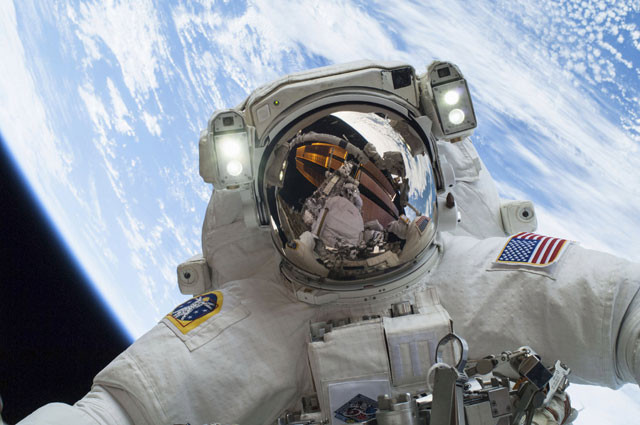Here's what can happen to the human brain in space
Astronauts could suffer irreparable brain damage

US astronaut Mike Hopkins participates in a spacewalk outside the International Space Station in December 2013. | PHOTO: NASA/REUTERS
According to the study, published in Scientific Reports, conducted by Charles Limoli and his team at the University of California Irvine, spending extended time in space not only harms the body but astronauts risk getting ‘space brain’, a type of brain damage caused by cosmic radiation.
The study conducted on rodents found that radiation exposure equivalent to the radiation experienced in space caused long-term brain damage to rodents, leaving them with cognitive impairment and dementia.
Obama vows to send people to Mars by the 2030s
Most surprising, according to Limoli was how persistent the damage to the animals' cells was. "In most cells there's a level of recovery," he said during a phone call on Monday. "We followed up six weeks, 24 weeks later. The changes don't resolve."
Indicating irreparable damage from long-term exposure to cosmic rays, Limoli’s findings suggest that a 300-day trip to Mars could gravely impact human brains.
Further, permanent cognitive impairment also leads to the loss of "fear extinction," a tool the brain uses to suppress traumatic events.
This suggests that astronauts may not be able to un learn unlearn stressful associations, which could pose a major problem because on occasions astronauts are required perform tasks under pressure.
US astronauts prepare station for commercial space taxis
However, Limoli sounds hopeful, he advocates improved research into spacecraft shielding, better astronaut helmets and pharmacological solutions for protecting the neural pathway transmissions that degrade with radiation exposure.
"Hundreds of thousands of years from now, if we want deep space travel, and we have to propagate life for generation after generation, you have to come up with a solution to this," Limoli said.
This article originally appeared on Mic



















COMMENTS
Comments are moderated and generally will be posted if they are on-topic and not abusive.
For more information, please see our Comments FAQ